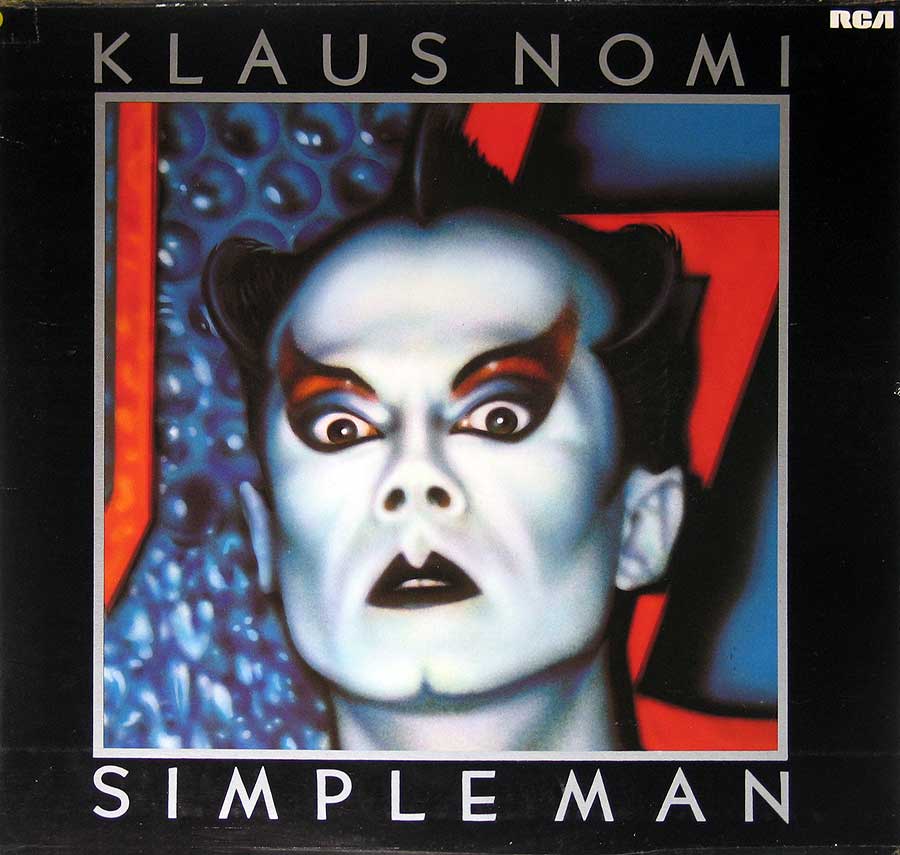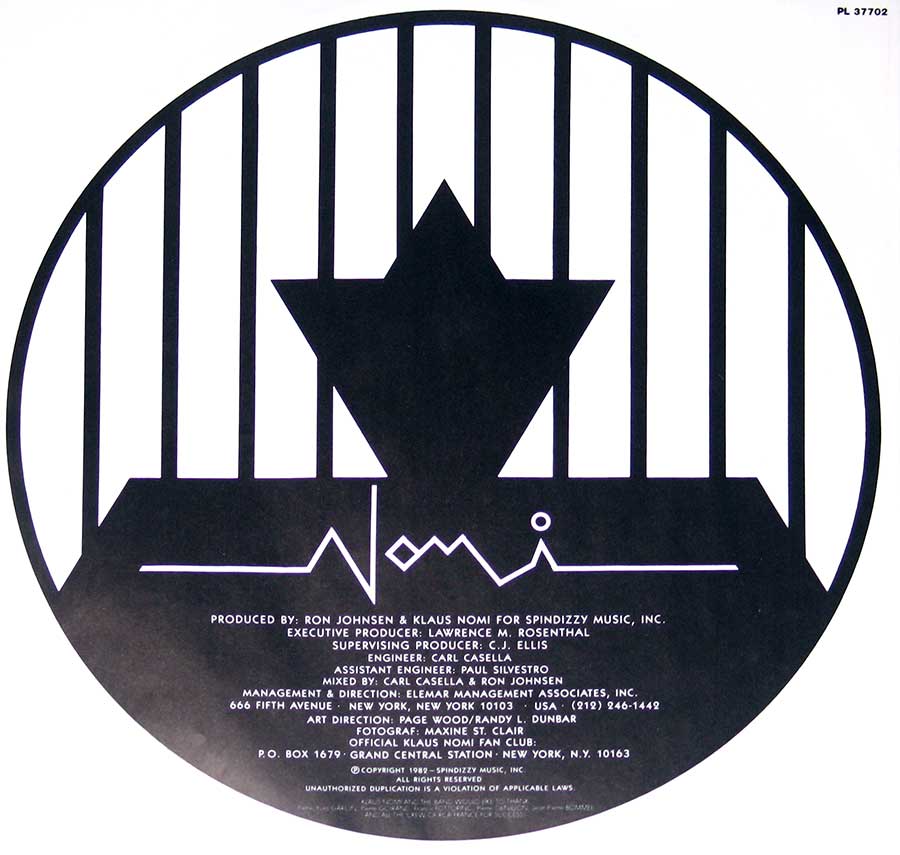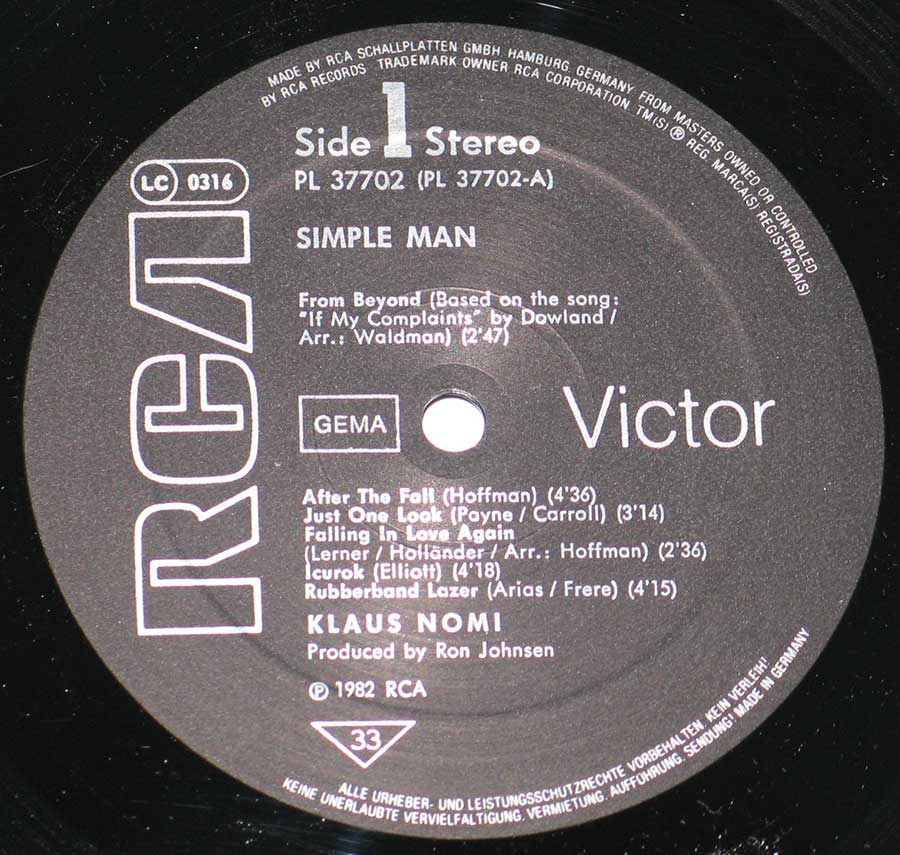In 1982, as the New Wave scene was in full swing and synth-pop ruled the airwaves, Klaus Nomi, the enigmatic German countertenor, released his second album, "Simple Man." But don't let the title fool you; this album was anything but simple. It was a bizarre and beautiful concoction of opera, pop, camp, and cosmic weirdness, a testament to Nomi's singular vision and boundless creativity.
Nomi was a true original, a musical mad scientist who fused high art and low culture, ancient melodies and modern beats, into a sound that was both timeless and utterly unique. With his shaved head, kabuki-inspired makeup, and outlandish costumes, he looked like a visitor from another planet, a space-age troubadour who had come to Earth to spread his gospel of musical mayhem.
"Simple Man" was a reflection of Nomi's eclectic tastes and fearless experimentation. It featured a mix of original compositions, covers of pop standards, and adaptations of classical pieces. From the soaring falsetto of "The Twist," a campy reimagining of the Chubby Checker classic, to the haunting beauty of "Death," a Nomi original that explored the darker side of the human condition, Nomi's voice was a force of nature, capable of both tender vulnerability and operatic power.
Fans were also drawn to the album's more unconventional tracks. "Ding-Dong! The Witch Is Dead" was a jubilant celebration of the Wicked Witch of the West's demise, reimagined as a synth-pop anthem. "Nomi Chant" was a hypnotic mantra that showcased Nomi's vocal range and theatrical flair. And "ICUROK," a cover of a Japanese pop song, demonstrated Nomi's willingness to embrace musical influences from around the world.
The album's production was a collaborative effort between Nomi and a team of talented individuals, including Ron Johnsen, Lawrence M. Rosenthal, and C.J. Ellis, who helped to shape and refine Nomi's unique sound.
The album was recorded at various studios in New York City, including the legendary Electric Lady Studios, a haven for musical experimentation and a fitting setting for Nomi's sonic adventures.
While "Simple Man" was a critical and commercial success, it also sparked controversy. Some critics dismissed Nomi as a novelty act, a mere curiosity, while others hailed him as a visionary genius. His flamboyant stage persona and unconventional musical approach earned him both ardent fans and fierce detractors.
But regardless of where one stood on the Nomi spectrum, there was no denying the impact he had on the music world. "Simple Man" was a bold statement of intent, a declaration of independence from the musical status quo. It was a record that dared to be different, a record that challenged listeners to expand their horizons and embrace the strange and wonderful.


